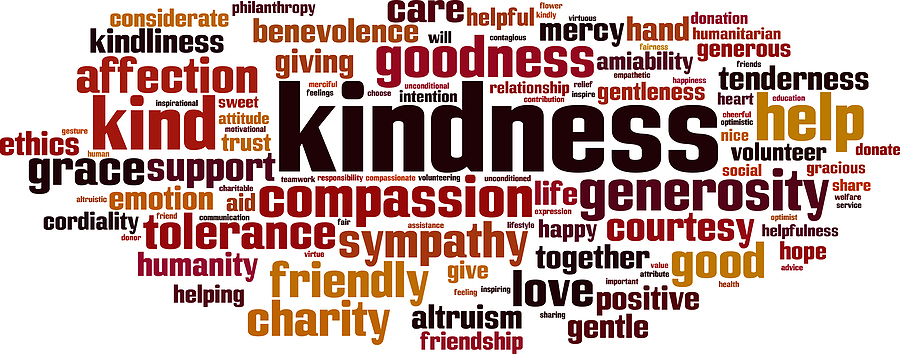
Is there a disconnect between the hot topics of kindness and compassion in the workplace, and how people actually treat each other? Anecdotally, it seems that both of these values are not in plentiful supply in many places of work. And while there is a lot about kindness at work on social media, that forum is also not universally a kind place.
Two scholars in particular, Lili Powell and Amy Bradley, have written convincingly of the importance of applying these values, and the missed opportunities when we revert to old, unproductive habits. Powell is Julie Logan Sands Associate Professor of Business Administration, UVA/University of Virginia Darden School of Business; Kluge-Schakat Professor, UVA School of Nursing; and Director, Compassionate Care Initiative, UVA School of Nursing. Bradley is professor of leadership and management at Hult International Business School, in the UK, and author of the recent book The Human Moment: The Positive Power of Compassion in the Workplace.
In a blog post about the book, Bradley notes that it “argues that compassion is a core human value, which is too often overlooked in business. In these challenging, unprecedented times, workplaces have a crucial role to play.” And further: “When I work with teams and groups, I can see how superficially they know their colleagues when it comes to their life journeys and the experiences that have shaped them. I see time and again that when we have the courage to share our struggles with our colleagues, our work relationships can profoundly deepen.”
Last November, UVA Darden featured Lili Powell’s work in its Ideas to Action series under the title “Leadership Kindness.” In my capacity as managing editor, I was privileged to work with her and her co-author, Drucker School professor Jeremy Hunter (my longtime friend and Drucker-world colleague), on their 2020 Leader to Leader article “How to Recapture Leadership’s Lost Moment,” which is cited in the UVA feature.
According to the “Leadership Kindness” article, “Powell believes that the context for leadership has fundamentally shifted and that a “going back to normal” mindset would be a mistake. Instead, she sees the opportunity for defining a “next normal” during which leaders have a chance to see the shifts that have occurred and intentionally craft a new blend of grit and grace in their own leadership skills repertoire, one that fits the new and evolving circumstances.”
In their Leader to Leader article, Powell and Hunter write: “To recapture leadership’s lost moment, leaders can learn to refocus on their immediate experience so they can lead more mindfully. Our approach emphasizes using intention, attention, and awareness to act and perform skillfully and dynamically in real time. Using diverse practices ranging from meditation, yoga, athletics, and the performing arts, leaders can learn to experience a moment in a high-definition way that increases the potential for better choices and leadership results.”
I was impressed by Bradley’s insights as a panelist for last year’s Global Peter Drucker Forum. Earlier that year, she contributed a blog post for the Forum, “Leading for “the Human Moment.” In that post, Bradley writes, “As we confront a future full of ambiguity, there is one thing that remains certain: the need for leaders to acknowledge the importance of meeting their own and others’ experiences with humanity. This means intentionally leading with compassion; being more fully present for those around them; listening with empathy and without judgement, and interpreting others’ responses through a lens of kindness.”
The work of Powell and Bradley reminds me of another recent Leader to Leader article, “Paying it Forward and Organizational Citizenship Behavior in Today’s Workplaces,” in our Fall 2021 issue. It is one of the “From the Front Lines” features, in which I interview scholars about their recent research, in this case inspired by the 2021 Journal of Theoretical Social Psychology article “Who pays it forward the most? Examining organizational citizenship behavior in the workplace,” by Theresa Eriksson and Caitlin Ferreira.
In my interview with Eriksson, a doctoral student in industrial marketing at the Luleå University of Technology in Luleå, Sweden, she noted that “the finding of our work that organizational commitment is a predictor of paying it forward behavior in the workplace is important as encouraging and demonstrating the behavior can result in a positive, self-reinforcing cycle in an organization. Research shows that kind acts are contagious, individuals who receive help are more likely to pay it forward and help others.”
